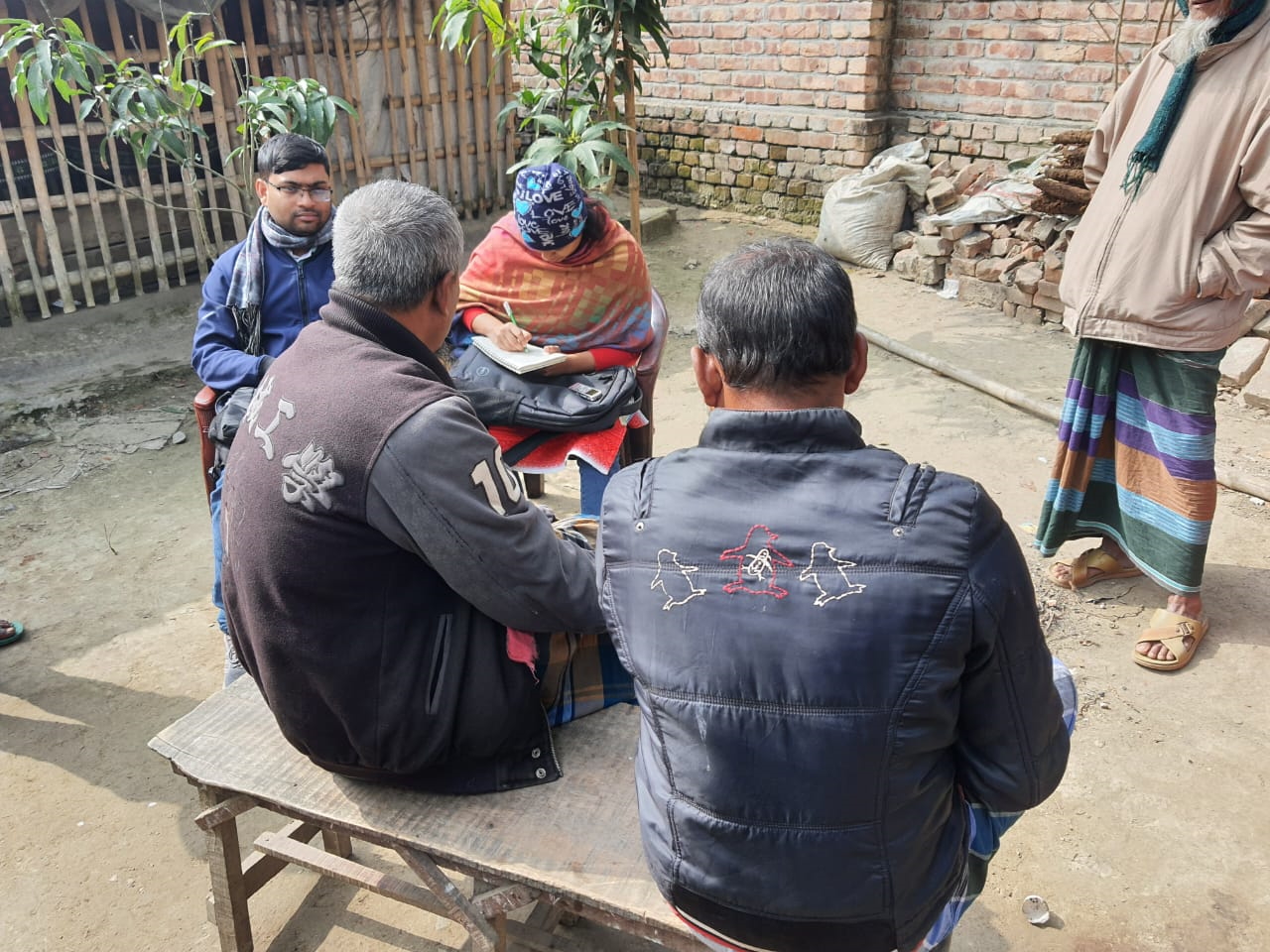The CLEAR programme, led by the Institute of Development Studies (IDS) is pleased to invite Expressions of Interest for FCDO-supported grants to support the generation of new evidence on the secondary impacts of the Covid-19 pandemic in Bangladesh. The evidence will support a national governance and policy response, improve service delivery and promote innovation.
PLEASE NOTE: CALL NOW CLOSED
The Covid-19 Learning, Evidence and Research Programme for Bangladesh (CLEAR), is seeking to award up to 8 grants of a maximum value of GBP 100,000 each. Grants will be open to non-governmental organisations (NGOs), academic institutions, or companies eligible to receive grants, who can apply either individually or as part of consortia. Individual applicants should be based in Bangladesh or consortia should include at least one Bangladesh-based organisation. The research and evidence uptake period will be one year from September 2022.
Today, we are initially inviting short expressions of interest to be submitted by Thursday 19th May. Shortlisted applicants will then be invited to submit a full, more detailed, proposal.
Where do we think the research gaps are?
Earlier this year, CLEAR commissioned a series of scoping studies and consultations to inform the design of the research agenda for the programme. These focus on what is known about the secondary impacts of Covid-19 in Bangladesh so far, the knowledge gaps that exist and the potential for new research to inform future policy and practice. The scoping studies propose a number of possible research questions that fall broadly under the following themes:
Poverty and vulnerability: Exploring how Covid-19 has impacted livelihoods, health, nutrition, education of the poor and increased vulnerability.
Service delivery, accountability and governance: The effectiveness of state responses in education, health, nutrition, social protection, justice and other sectors to address the social impact of Covid-19 at the national and local levels. How well are the various accountability mechanisms functioning to ensure service delivery, what has been the role of civil society in engaging with the state on accountability gaps, and how have the interactions between citizens and the local government shifted?
Protection of rights: How Covid-19 has impacted vulnerable populations and their rights (workers in export processing zones, informal workers, women, disabled, minorities, migrants) and the measures taken by the state and civil society organisations and social movements to ensure their rights
Innovations: The use of various digital platforms to share information on health, education, justice and other services, and alternative channels/programmes designed for service delivery.
These are provided as guidance to inform possible grant applications, and we recommend you read the papers most relevant to your areas of interest but we also recognise that this is not a definitive list. We welcome suggestions for other research questions that address a different sector, knowledge gap or opportunity.
CLEAR Research Briefings
- Impact of Covid-19 on Migration in Bangladesh
- Impacts of Covid-19 on SRHR and MNCH in Bangladesh
- Social Protection During Covid Times: Research for Building Forward Better
- Accountability and Responsiveness in the Covid-19 Response in Bangladesh
- The Impact of Covid-19 on Labour Rights and Working Conditions in Four Selected Sectors
- The Impact of Covid-19 on the Education of School Children in Bangladesh
- Violence Against Women in Bangladesh and the Impact of the Covid-19 Pandemic
CLEAR Scoping Papers
- Chowdhury, S. and Hossain, N. (2022) ‘Accountability and Responsiveness in the Covid-19 Response in Bangladesh’, Brighton: Institute of Development Studies, DOI: 10.19088/IDS.2022.027
- Hassan, M.; Aziz, S.; Rahemin, R.; Khan, I. and Hoque, R. (2022) ‘Impact of COVID-19 on Labour Rights and Working Conditions in Four Selected Sectors’, CLEAR Scoping Paper, BIGD: Bangladesh
- Hossain, M. and Rahman, K.W. (2022) ‘The Impact of COVID-19 on the Education of Primary and Secondary School Children in Bangladesh’, CLEAR Scoping Paper, BIGD: Bangladesh
- Hossain, R.; Khaleque, A.B. and Mahmood, S. (2022) ‘A Scoping Review on the Impact of COVID-19 on Migration in Bangladesh’, CLEAR Scoping Paper, BIGD: Bangladesh
- Hrynick, T.; Barasa, V. and Abbas, S. (2022) ‘SRHR and MNCH in Bangladesh: A Scoping Review on the Impacts of the Covid-19 Pandemic’, CLEAR Scoping Paper, Brighton: Institute of Development Studies, DOI: 10.19088/IDS.2022.028
- Siddiquee, M.S.H.; Faruk, A. and Matin, I. (2022) ‘Social Protection During Covid Times: Research For Building Forward Better’, CLEAR Scoping Paper, BIGD: Bangladesh
- Sultan, M.; Mahpara, P. and Tasnin, F. (2022) ‘COVID-19 Learning, Evidence and Research (CLEAR) for Bangladesh: Scoping Paper on Violence Against Women’, CLEAR Scoping Paper, BIGD: Bangladesh
